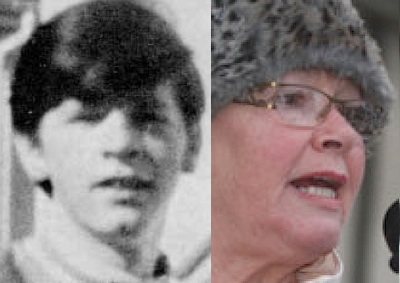
The revelation that an administrative scheme to deal with IRA ‘On the Run’s’ (OTRs) has been operating quietly for at least 13 years has angered some of those bereaved by the Bloody Sunday massacre and other state killings.
Sinn Fein has strongly denied claims that they agreed to an amnesty for British soldiers in return for so-called “letters of comfort”. The letters indicate that no conflict-related prosecutions would be brought against its recipients. Sinn Fein said the 187 letters issued so far to its supporters served to clarify the uncertain legal position facing many nationalists and republicans as a result of historical events.
But the SDLP has accused their political rivals of ‘dishonesty’ in their dealings with the past.
Former British Direct Ruler Peter Hain said this week that an amnesty should naturally be extended to murderous members of the British Crown forces, including those who were involved in the Bloody Sunday killings.
“If you have, as has been the case, addressed the question of former terrorists involved in activity, then it should apply even-handedly right across the board to members of the British security forces as well,” Mr Hain said.
In response, Sinn Fein’s Raymond McCartney said Hain’s comments were “ill judged and inappropriate”. He said his party had always supported the Bloody Sunday families, but he said Sinn Fein at no point agreed to an amnesty deal with the British military.
“When the then British Secretary of State, Peter Hain introduced a reference in the proposed legislation (in 2005) to immunity for the British army, Sinn Fein immediately rejected it and rather than remove the section Hain dumped the whole Bill necessitating the renegotiation of the current OTR process.”
Relatives of the Bloody Sunday victims say that their support was sought by Sinn Fein in 2005 for Hain’s OTR legislation and in return they would have to drop their campaign to see members of the British military prosecuted for the 1972 massacre. They fear a ‘side-deal’ has also been formalised for members of the Crown forces.
Kate Nash, who’s brother William was shot dead on Bloody Sunday and her father Alex wounded whilst trying to go to his son’s aid, described the situation as a “disgrace.”
She said the offer made to the Bloody Sunday families to support OTRs in return for dropping possible prosecutions against members of the Parachute Regiment had been wholly rejected by the families.
“Nobody should be above the law. I wouldn’t be surprised if soldiers had already been given similar letters. Sinn Fein seem to be leading players in this with the British government. It’s shocking I suppose but not actually a surprise. It smacks of intrigue and dirty dealings. Where was the openness and transparency over this?”
Linda Nash reiterated her sister’s claims and said she recalled thinking “what is an OTR?”
“They wanted to lump in support for OTRs in an immunity deal where no soldiers were prosecuted, but nobody agreed to it. I thought if they are on the run, that’s up to themselves, it has nothing to do with us,” she said.
Mr Durkan, a former SDLP leader, accused Sinn Fein of being only concerned with “getting their on-the-runs back with no questions asked, i.e., it has not been about the victims.”
Referring to those who were given clearance letters as “Shinners list”, he added: “We always knew they was going to be a side deal. Peter Hain launched his Bill (in 2005) and it took in OTRs and everybody else. It was unconscionable that it was not going to be all-inclusive. Closure cannot be one-sided.”
‘NOT AN AMNESTY’
Sinn Fein Martin McGuinness has said the fact that some republicans were denied letters -- and told they would be arrested if they entered a British jurisdiction -- proves that they were nothing more than official confirmation that there was no evidence linking individuals to offences.
And PSNI chief Matt Baggott also told a meeting of the Policing Board in Belfast there was no amnesty.
Mr Baggott said: “As far as I am concerned there are no get out of jail cards, there are no amnesties and there are no letters of immunity. If new evidence emerges then it will be investigated and we will send reports to the Public Prosecution Service.”
For its part, the British government also insisted that the various letters sent out over the years did not amount to “immunity, exemption or amnesty from arrest”. And the scheme is now at an end, British Direct Ruler Theresa Villiers said on Friday.
But the DUP and SDLP has continued to insist they had not been told of the scheme, claiming a reference to it at a Policing Board meeting in 2010 had been without key details.
The DUP has said that a judge-led inquiry, ordered by British Prime Minister David Cameron and due to conclude by May, would see the names of every republican on-the-run that received a letter be made public -- and that at least some of the letters would be overturned.
Sinn Fein president Gerry Adams has claimed the entire controversy is a sham crisis.
“It is important to understand that the letters provided cannot be rescinded. If you’re not wanted -- you’re not wanted,” he said. “Clearly, despite all of the feigned brouhaha and hot air generated by unionist leaders, this process is not an amnesty.”
![[Irish Republican News]](https://republican-news.org/graphics/title_gifs/rn.gif)
![[Irish Republican News]](https://republican-news.org/graphics/title_gifs/harp.gif)

